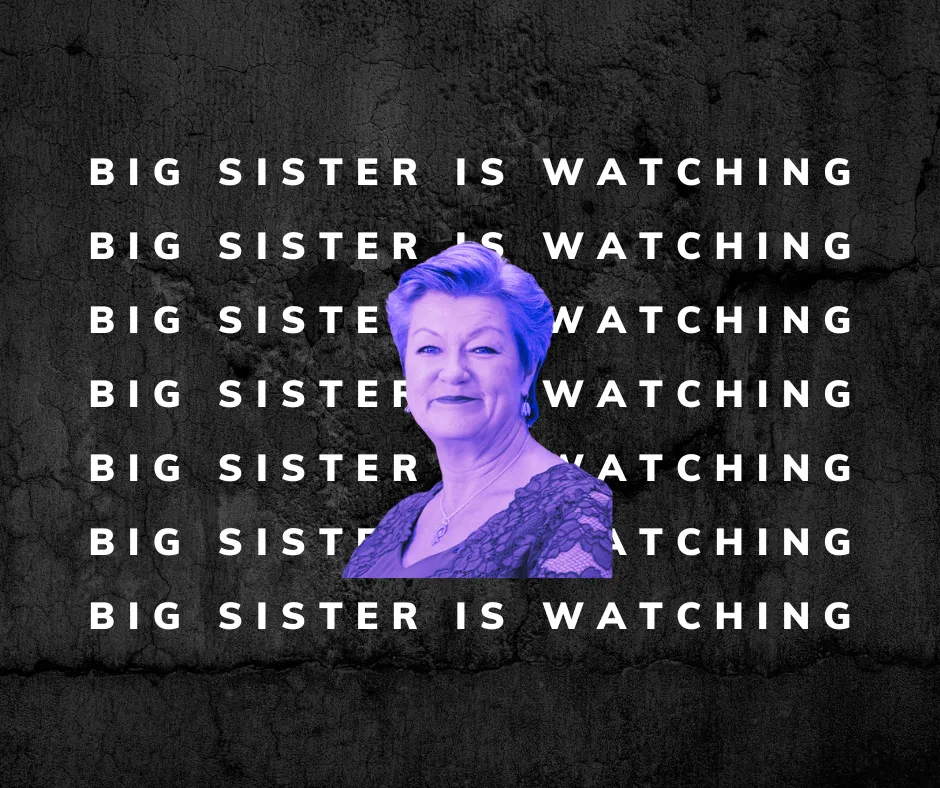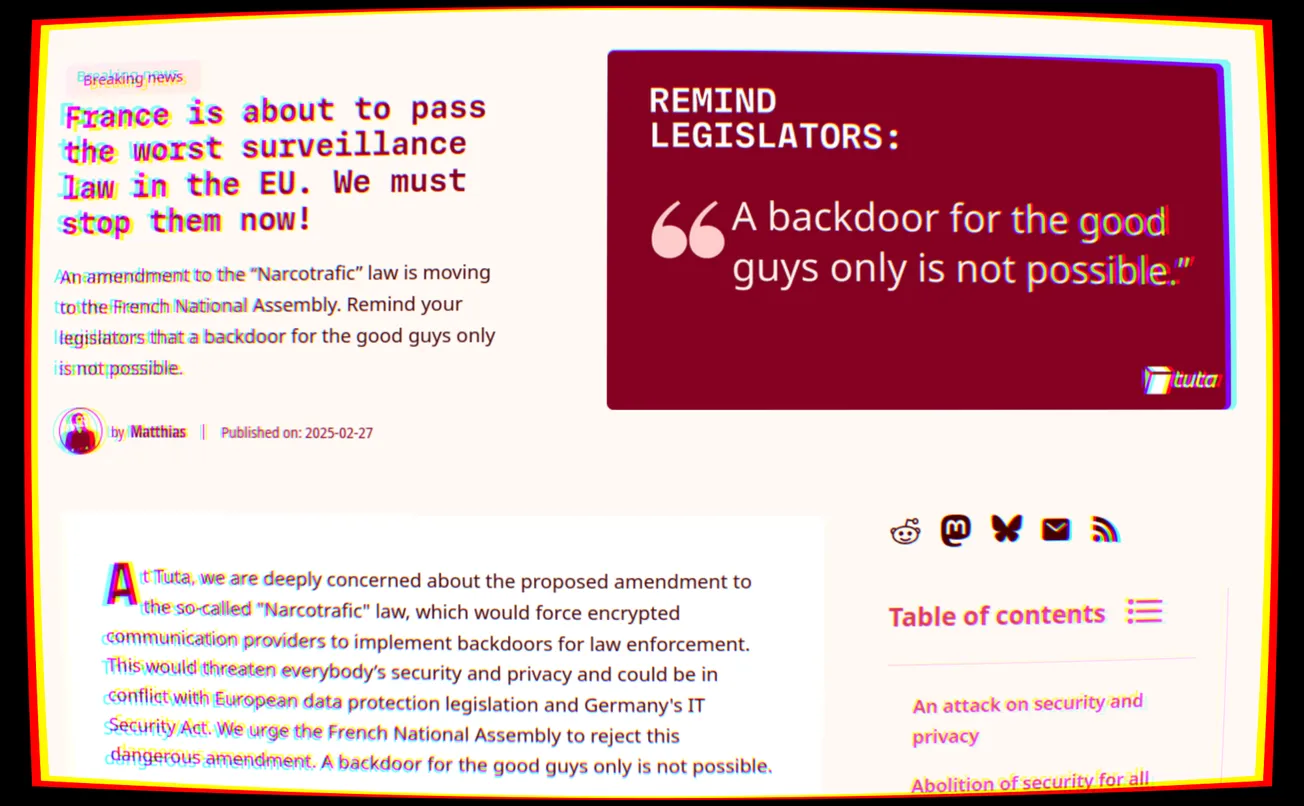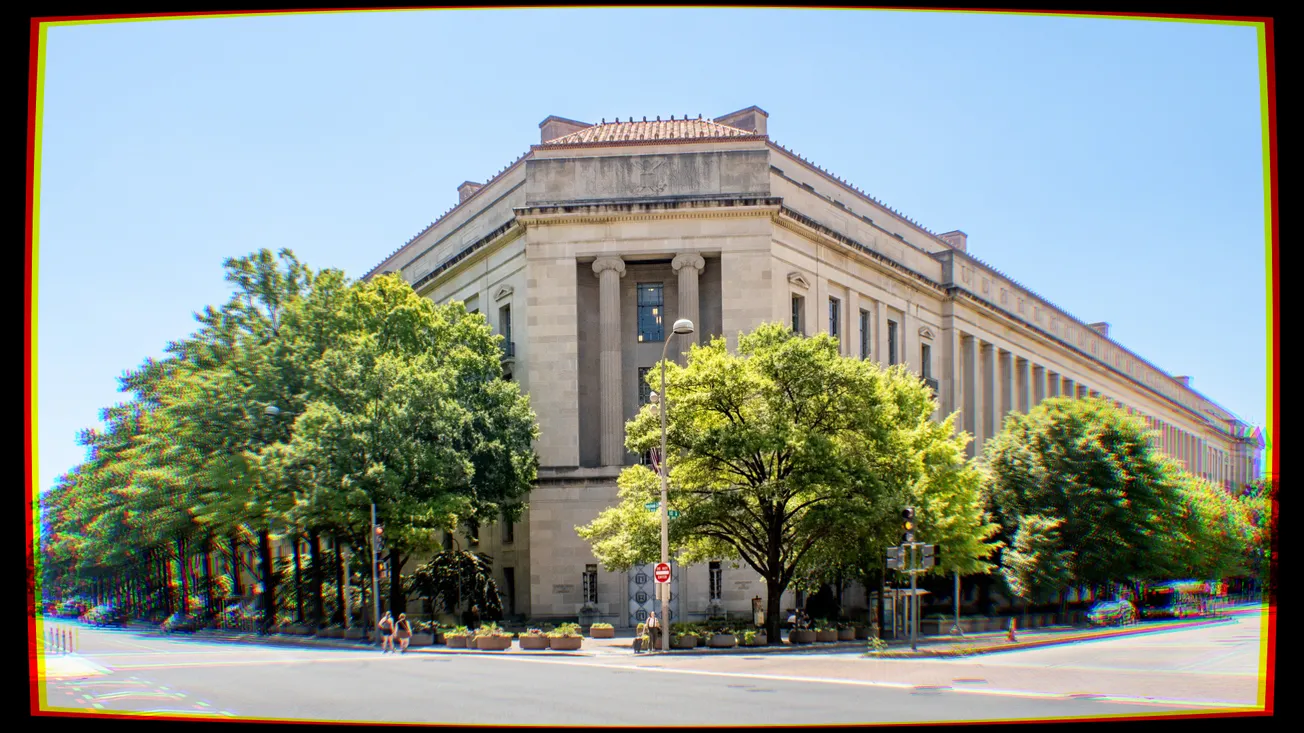Table of Contents
Did you know that more than half of the Tor browser's funding comes from the U.S. government? In the fiscal year 2021-2022, they received more than $3M, whereas individual donations only accounted for 28% of the revenue.

Similarly, just a few months ago, F-Droid announced that it had won a grant of slightly less than $400k, also paid by the U.S. government. As they explained, this would allow them to "refactor and integrate code with other maintained projects", "establish clear policies and legal strategies", "improve our localization workflows", and so on.

Of course, we're not currently in the best time to rely on U.S. governmental funds. We've recently covered how the dismantling of the USAID agency directly affected Mozilla-selected projects to bring open internet awareness in other countries, and the funding that I mentioned above is now at risk as well.

Let's start from the beginning. On March 14th, a Presidential Action was published that ordered the "elimination to the maximum extent consistent with applicable law" of seven governmental entities, including the "United States Agency for Global Media", or USAGM.

As a direct result, the USAGM senior advisor Kari Lake (a Republican politician who endorsed the current US president) has vowed to "fully implement President Trump's executive order", and claimed that USAGM was "not salvageable" as it is "a giant rot and burden to the American taxpayer".

You might be guessing where this is headed: USAGM funded (funds?) various external entities, from "Voice of America" (a news source with a weekly international audience of 361 million people) to "Radio Free Asia" (a domestic news corporation in six Asian countries) and, of particular interest to us, the "Open Technology Fund".

The OTF is an independent non-profit organization that, according to them, aims to "advance global internet freedom. We support projects focused on counteracting repressive censorship and surveillance, enabling citizens worldwide to exercise their fundamental human rights online".

Going through the list of supported projects, there's a clear pattern: we have OONI anonymous credentials, projects to measure internet censorship in foreign states, projects to make it easier to document human rights violations, supporting exiled and underground media organizations, and so on.

This includes multiple open-source projects, even notable ones. We've already mentioned the Tor browsers - and I hope I don't have to explain why that's a big deal for internet privacy - but there's also Let's Encrypt, providing secure certificates, and Tails, a portable Linux distribution that runs from a USB stick.

Finally, I've also mentioned F-Droid, which is an application store of FOSS applications that assumes a particularly important role in countries where the built-in application store might be particularly government-controlled.

Let's put some numbers on all of this. The OTF's total budget slowly raised from ~$10M in 2019 to a grand total of $40M in 2023, almost half of all allocated funds by Congress to promote Internet freedom globally.

F-Droid received around ~$400k, Let's Encrypt received $800k exactly, and the Tor project received just shy of that over two years. Though these numbers are certainly a significant help for open-source projects, which sometimes struggle to find funding, I would also like to argue that they're extremely small in the context of the U.S. budget - which is in the order of magnitude of trillions per year - and yet it has a high return on investment, making sure that core internet privacy infrastructure gets developed actively.

More recently, Congress had directed that - for both the fiscal years of 2024 and 2025 - the funding should be "not less than $43,500,000", which guaranteed an income stream for 2025 too.

However, on March 15, the OTF received a letter from the above-mentioned Lake, where she said that "the award no longer effectuated agency priorities", and would thus "terminate all grant funding".

The OTF has decided to fight against this by opening a lawsuit; according to them, the Congress directives do not allow for the USAGM to arbitrarily stop the funds. According to them, "the termination of its grant, the mechanism by which OTF receives its Congressionally-appropriated funds, is unlawful".

The OTF was not the only one; other entities that were funded by the USAGM, including Radio Free Asia, RFE/RL, and Lake and Victor Morales (the USAGM acting CEOs) all decided to sue USAGM to prevent the grants from being withhold.

To fight that, USAGM disbursed $7.5M to these entities, in "what seemed to be an effort to delay the hearing or woo the judge". Regardless, the latter has sided against USAGM, and just a few days ago, the agency has decided to back off and release the funds for the 2025 fiscal year.

Even though it's great that the OTF survived the attempt of being shut down, this does leave me worried for its future. Congress is now under Republican control, and they must approve funds every year.









